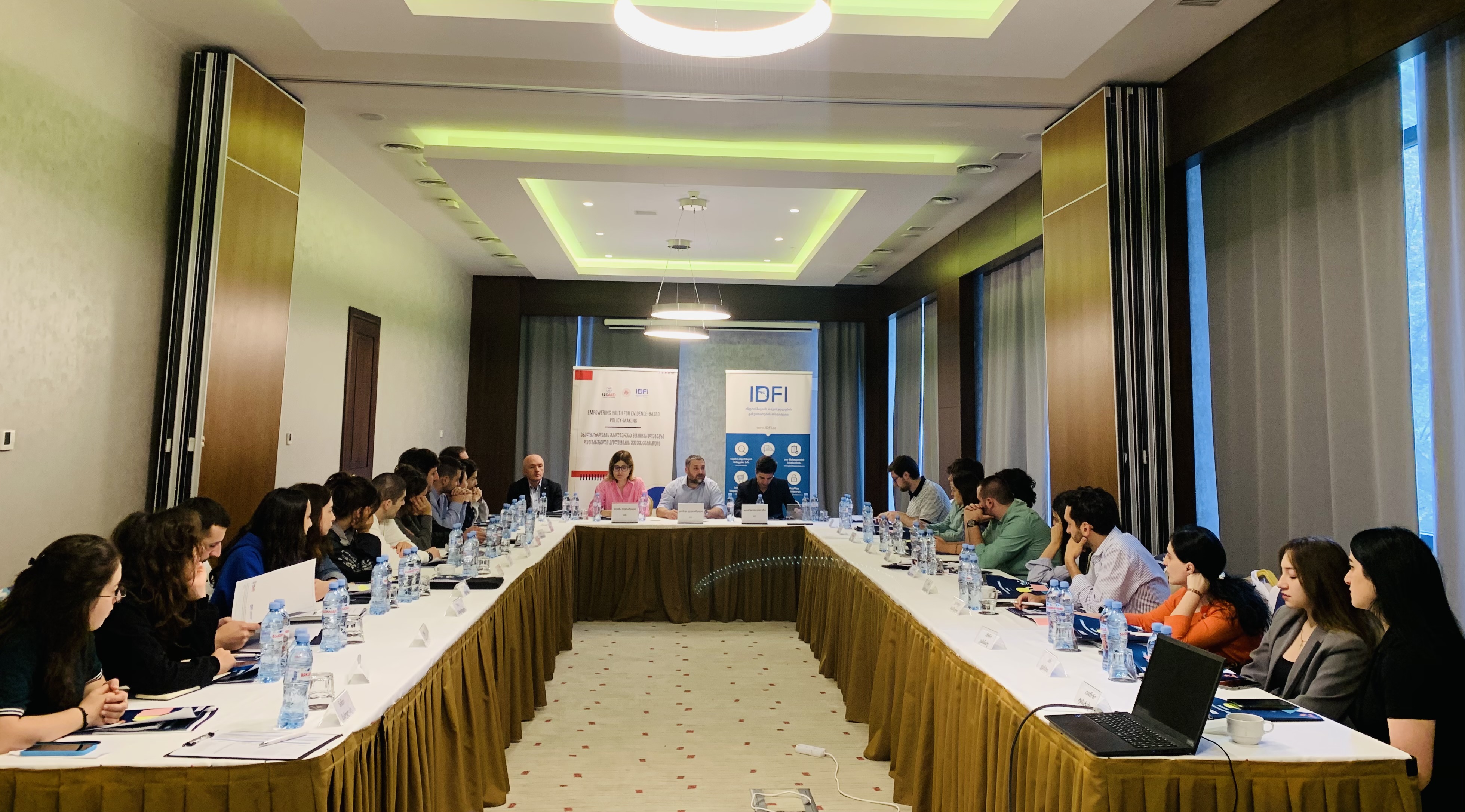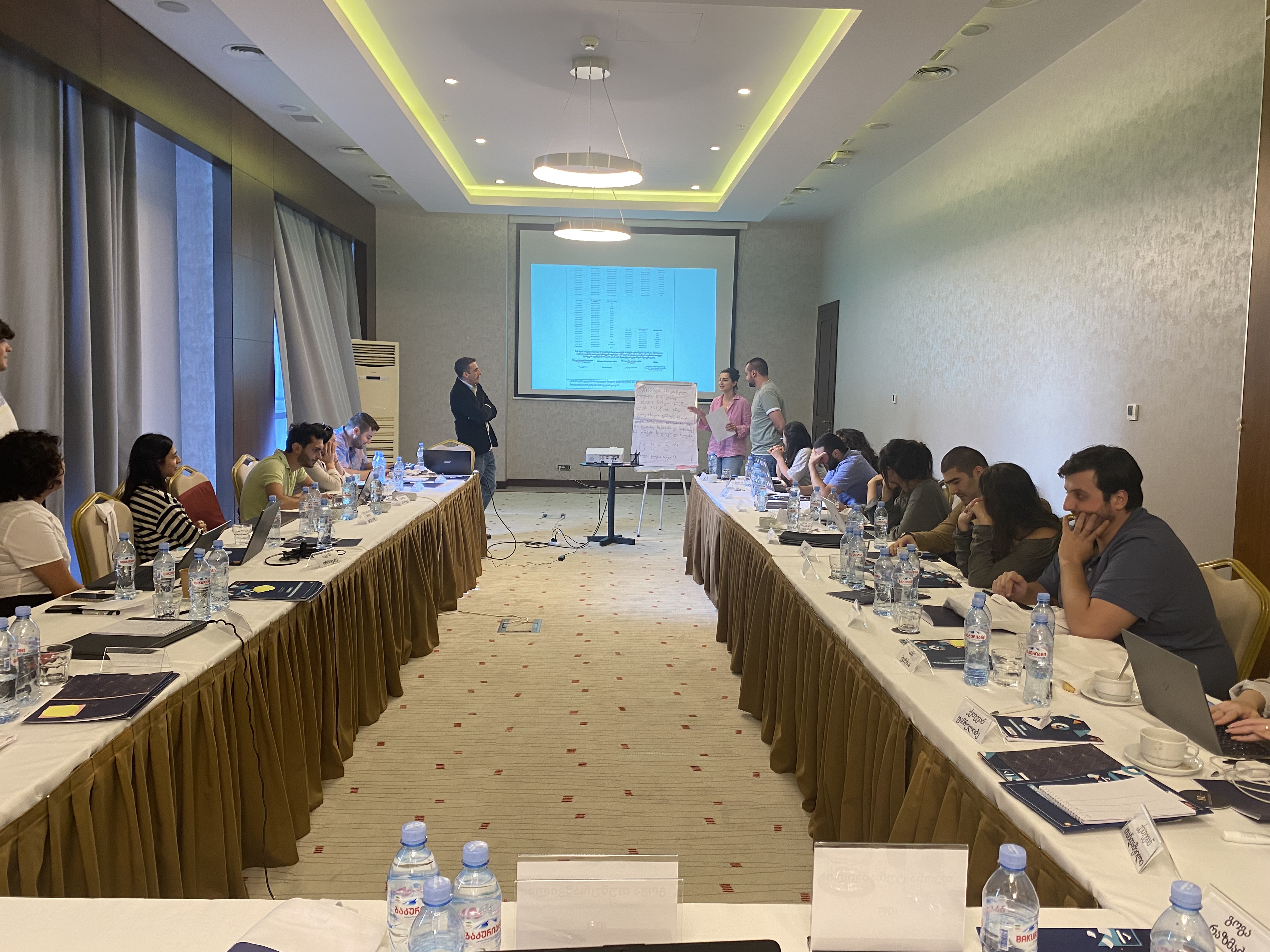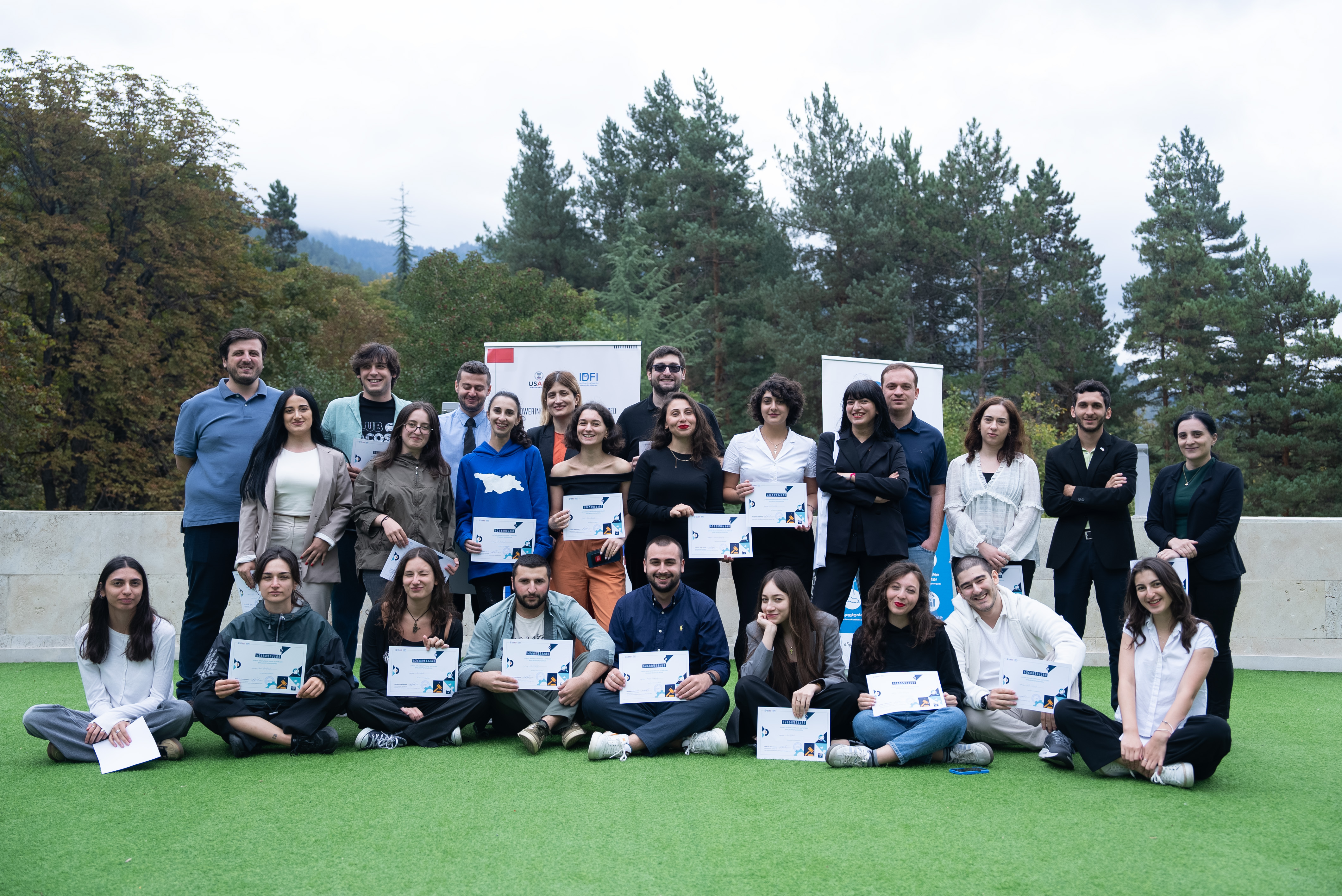


 From September 16-20, 2024, IDFI, with the support of the USAID National Governance Program, held the "Good Governance School" as part of the project "Pilot Initiatives for Youth Engagement and Mentoring in Public Policy."
From September 16-20, 2024, IDFI, with the support of the USAID National Governance Program, held the "Good Governance School" as part of the project "Pilot Initiatives for Youth Engagement and Mentoring in Public Policy."
The school was attended by 24 participants, selected through a two-stage competition, including young researchers, students, and civic activists with a keen interest in good governance, public administration, anti-corruption efforts, and public finance management monitoring.
At the opening ceremony, Giorgi Kldiashvili, Executive Director of IDFI, addressed the participants, congratulating them on their success in the competition.
Throughout the school, participants enhanced their theoretical and practical knowledge of good governance, public administration, anti-corruption efforts, and transparency reforms across various branches of government, including in the context of Euro-integration. They also learned and applied tools and mechanisms for monitoring public spending and overseeing public institutions. The program featured practical group and individual assignments, as well as presentations.
The main goal of the school was not only to provide theoretical and practical knowledge but also to give participants the opportunity to work on individual short analytical papers or articles. If selected for publication, the authors will receive a one-time scholarship.
The school sessions covered the following topics:
Reforms required on the path to Euro-integration, particularly in the areas of anti-corruption and de-oligarchization: legal frameworks, practices, and key challenges.
Public administration reform, with a focus on good governance and civil service reform.
Strengthening supervisory and independent institutions.
Key mechanisms for monitoring the government: requesting and accessing public information, and methods for monitoring public spending.

Various local experts and professionals from diverse backgrounds were invited to speak at the School, including:
- Giorgi Davituri, Head of IDFI’s Rule of Law and Media Freedom Direction, who introduced participants to the reforms required on the path to Euro-integration, with a focus on anti-corruption and de-oligarchization: legal frameworks, practices, and key challenges.
- Paata Turava, Professor at the Faculty of Law at Ivane Javakhishvili Tbilisi State University, who presented on public administration reform in the context of good governance and civil service reforms.
- Giorgi Burjanadze, Associate Professor at Free University of Tbilisi and Legal Advisor at the Civil Society Foundation, who discussed the role and functions of independent state and supervisory institutions.
- Nino Ramishvili, Investigative Journalist at Studio Monitor, who shared insights into the resources, challenges, and outcomes of her investigative work in monitoring government activities.
- Giorgi Mgeladze, Investigative Editor at Radio Free Europe/Radio Liberty’s Tbilisi Bureau, who spoke on investigative journalism methods and resources, drawing from his own journalistic experience.
- Teona Turashvili, Head of IDFI’s Local Government, Internet, and Innovations Directions, who outlined the thematic priorities of the project and the general requirements for analytical papers. She also discussed the implementation of good governance standards and relevant international initiatives.
- Goga Tushurashvili, Head of IDFI’s Research Direction, who presented on the mechanisms for monitoring government activities and introduced participants to key features and functions of crucial electronic platforms for government oversight.

In addition to theoretical sessions, the School's program incorporated practical group and individual assignments, along with presentations that allowed participants to apply the knowledge they had acquired. Participants selected specific public policy issues of interest, formulated research questions, and began collecting relevant data through various methods, including public information requests.
As a follow-up to the School, participants will continue to work on these issues and prepare analytical papers, six of which will be selected for publication.
Please see the full program of the Good Governance School.
/public/upload/01. TEONA/DAI-Youth/Program-Final.pdf